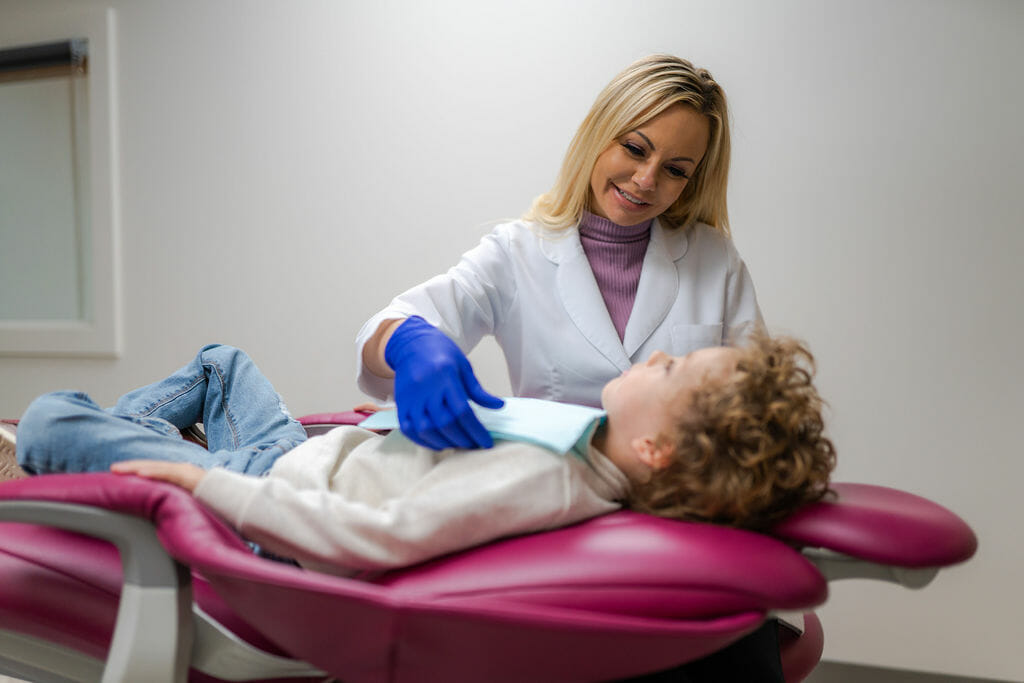Root Canal Treatment
Root Canal Treatment
 What is root canal treatment?
What is root canal treatment?
While there are situations that call for having a baby tooth extracted, sometimes the best course of action if your child is suffering from intense tooth pain is to have root canal treatment. Root canal treatment, also known as a pulpectomy or a root canal, is a dental procedure that is recommended if a very deep cavity or traumatic tooth injury has caused a severe infection in a primary tooth. For children, a root canal is one of the best ways to prevent tooth extraction while restoring the integrity of a baby tooth until the adult tooth comes in.
How does having a root canal prevent extraction?
Just like in an adult root canal, a root canal for children removes the diseased pulp tissue in a baby tooth to treat a severe infection. Removing the infection to prevent tooth extraction is important for the following reasons:
- Keeping primary teeth ensures children retain full function of their teeth, jaw, and tongue, preventing trouble with speech and eating.
- Baby teeth guide permanent adult teeth into their proper position when they come in. Early primary tooth loss can lead to the abnormal eruption of adult teeth, which can be painful and costly to treat.
What is a baby tooth pulpotomy
Unlike an adult root canal, a pulpotomy in a baby tooth only requires our dentist to remove the pulp chamber. The need for specialized instruments to remove the pulp is rare since only the surface nerve structure in the nerve chamber is removed. This leads to faster and less painful and invasive route canal treatment procedures for our young patients. After the pulp is removed, we fill the hole with a medicated material, then cap the tooth with a restoration like a baby crown, to return the tooth to its shape and structure.
Are root canals painful?
It’s no secret that root canals have a bad reputation for being painful, both during and after the procedure. But at Smile Wright Dental, our young patient’s comfort is our top priority, and we take all the steps necessary to make our patients feel relaxed and comfortable during the procedure. We use local anesthetic and have nitrous oxide, commonly known as laughing gas, to ensure relaxation. After the procedure, the pain will subside quickly and can be managed with an over the counter children’s pain reliever. If your child experiences dental-related fear or anxiety, there are other options for sedation. Contact our office today to learn more, or to schedule a consultation for a child root canal treatment.

 What is root canal treatment?
What is root canal treatment?
